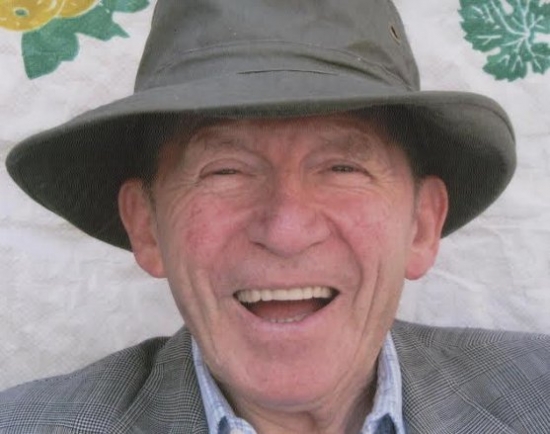
This was a most important event. It would last a week. WWII was over, and now there was time to enjoy literature, history and Jewish philosophy. A flood of new books had been published.
Important visitors had been invited to speak, such as Professor I. Jonker, the author of the book Scapegoat of History, and the English writer and translator Joseph Leftwitch. I had seen the advert in the Zionist Record and as a 15-year-old teenager decided to go.
Early on a Sunday morning I said goodbye to my parents and left our home at 13 First Avenue, The Hill, a new development in the southern suburbs of Johannesburg, not too far from the Turfontein race track. I walked past my father’s gabled shop and past the island. Further on was the Usvolk’s shop with a butchery and pharmacy next door.
The double-decker bus was painted red, number 28. It raced down the road, stopping to let me on. It was a 20 minute ride to town, ending at the large Van der Bijl bus terminal, which lies between Eloff and Rissik Streets.
On the left was the Escom building, the tallest building in town. Buses were infrequent on Sundays so there were few people walking about. The café bioscopes were closed. I walked up Rissik Street to the city hall. There were tall palm trees at the mayoral entrance. Here, a few weeks before, we had heard Prime Minister Jannie Smuts speaking outside on a podium. Pigeons were flying above the trolley wires.
Opposite the open space was the post office, with its historical clock whose clang resounded hour by hour throughout the city as far as Hospital Hill and Hillbrow.
I went through the glass side door and up the stairs to the Duncan hall. There was no charge. I took a brochure. Only one man sat in the corner. It was Rabbi Abt, a striking blond man with a ruddy face and a goatee beard who spoke with a German accent. I was the only visitor and what a glorious morning it was.
This was the first time I had ever been to a book festival. Long tables were standing side by side around the hall, which was lit up. The sun shone through the northern window where the rabbi sat.
I wandered past these new books with intact outer covers. I peered inside and read them with a new-found intensity. I moved from table to table, never caring to sit down. There were books from England, America and a few from Israel, including the smaller volumes by Shocham press with Agnon’s shorter novels. There were Jewish studies of Maimonides by Hebrew professors; English translations of the Spanish poets who had lived in Cordoba and Toledo in the Middle Ages; collections of Heine’s poetry, anthologies, plus his incomplete book of life in the Middle Ages; and a Pesach story of a rabbi and his community who had lived along the Rhine river entitled The Rabbi of Bacharach.
It was the first time I had come across the great German Jewish writer Stefan Zweig, with so many stories and biographies and his own Austrian memoirs in such a clear, lucid, romantic style. I saw Professor Roth’s Jewish art tome with color prints inside, and I realized that Isaac Levitan, a Russian painter who lived around 1880, could paint clouds as bewitching as those of our Pierneef. Levitan had lived in those fascinating years at the turn of the century before the First World War.
The collection included Saadia Gaon’s treatise on keys in music and their respective colors, and Franz Rosenzweig’s religious philosophy book Star of Redemption.
I moved from table to table during the hours left to me. I recall the wonder of that first-time exposure. The experience of turning the pages of new books relating to our varied history was fascinating: the brilliance of our writers, such as Kafka, who had written in German while living in Czechoslovakia.
There were even books by controversial writers such as Sholem Asch. I remembered that my father had read me his book, Motke Ganif, in Yiddish. The religious leaders discouraged reading him as he had made some sort of connection with the Christian religion. There were two camps of intellectuals: the religious ones who did not read his books and the Yiddishists who defended him to the end.
Martin Buber was represented by several books on the table, controversial today but less so then. His book on mysticism and Chasidism in the collection was vital. He had done research into the many stories about this group and the turn of the century. His father, a rabbi, had written midrashim.
Lectures were held every evening at 7.30. That particular day I came to hear Joseph Leftwich talk. There was a large crowd. He was a shortish man who wore thick glasses like Jabotinsky. He had edited a large book of short stories called Yisroel, written by many authors throughout the world. He had translated many Jewish poems from different parts of Europe, in a book called Golden Peacock, which included the great poets from the Soviet Union, America, South America, Poland, Romania, France, England, what was then Palestine, women poets and folk songs, where the names of the composers and poets had already been lost to history.
Everyone listened attentively during the long lecture. He spoke of the many Jewish writers and explained how the Jewish religion affected their writing.
After the lecture he asked for questions from the audience. I stood up and asked, “How does the Jewish religion relate to middle class capitalism and socialism?” There was a distinct rumble in the audience. My neighbor gave me a nudge and said in Yiddish “mish niet,” which meant don’t involve yourself in serious adult matters. How could a teenager in short pants ask such a question? Leftwich stood up and with a smile defended me, saying: “Youth can ask original questions and by asking them it could help in their reaching maturity.”
I left the hall during tea time. It was late, almost 11 pm, when the last buses left for the southern suburbs. It was a cool night and I was not afraid to walk alone. As I walked down Rissik Street the street lights were on. The shop windows were lit up. I passed the gold jewellery store. A few watchmen were around. I saw the large bookshop in Commissioner Street. They were displaying the new Penguin soft-cover books. Among them I noticed Balzac’s Old Goriot. They were edited by a man named Riu.
It was late and I felt very satisfied and pleased that I had spoken to such a great author and writer.
The engine of the double-decker bus had started and I had to run to it, and jumped onto the platform, breathless. Upstairs I found our neighbor, Marinatos, slouched in his seat. He had spent too much time at the bar near the terminal. The driver sped on, wanting to complete his trip in the shortest time. We rode past the Suncrush cool drink factory, and my uncle’s Lecol fruit juice bottling plant, past La Rochelle, past our shul, arriving at the bus stop opposite Osner’s house. I realized there was a world of culture in town and even now and then a concert in the city hall or an opera at His Majesty’s Theater.
I woke Marinatos and helped him down the steps. I held onto him and guided him to his home. Our gate squeaked as I opened it. I walked onto the polished stoep. The light at the entrance hall was on and it shone behind the frosted glass. I carefully opened the door and slipped in.
What a night! What a week!
The Johannesburg Ben Krengel writes about and the Johannesburg I remember walking about freely as a child no longer exists. This city of gold, built on a mountainous plateau more than 5,700 feet above sea level, has turned into the proverbial "pot of honey" which attracts "flies" from all over Africa. Walking around the crowded town, even by day, is a risky business. How the large businesses in the city center keep going, I can't even guess.
Meanwhile the wealthy northern suburbs, perched on the gigantic rolling mountaintops of the Witwatersrand, have become isolated fortifications surrounded by walls topped with electric fences. Many streets have been blocked to traffic, and those few negotiable ways leading to each "fortification" are manned by armed guards. Hopefully these problems will fade into history as new governments strive to bring life back to normal. Mike Porter
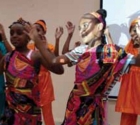 End of Year Event - Hefzibah, Netanya
End of Year Event - Hefzibah, Netanya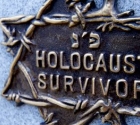 Additional 1-time Payment to Survivors who worked in the Ghetto
Additional 1-time Payment to Survivors who worked in the Ghetto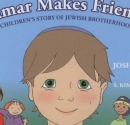 ITAMAR MAKES FRIENDS - A Review
ITAMAR MAKES FRIENDS - A Review (302x450)-1451381711.jpg) Odeon Oscar
Odeon Oscar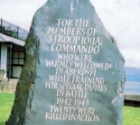 The Jewish Connection
The Jewish Connection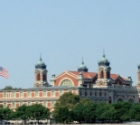 ellis island
ellis island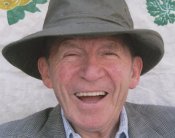 Ben Krengel
Ben Krengel